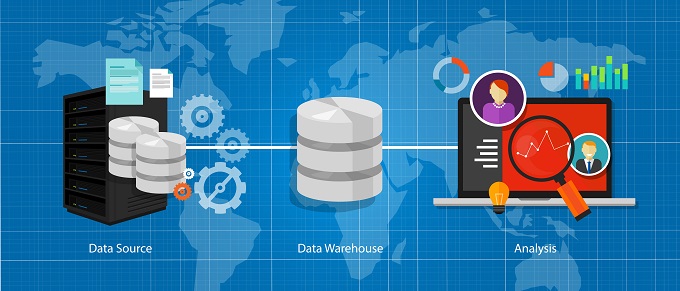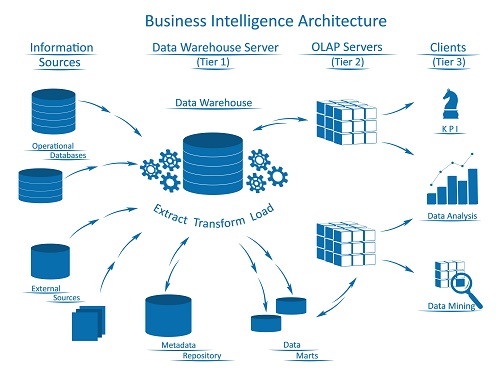
A data warehouse is the cornerstone of a successful business. The idea of data warehousing is simple: provide a centralized hub and a secure storage space for the many sources of data needed to sustain an organization’s research, reporting, and other business operations. You can’t overlook the value of data warehousing; however, it’s worth mentioning that establishing a data warehouse is expensive – megabucks.
The dilemma is that when megabucks are involved, it’s difficult to account for such funds on any task–mainly when you can’t estimate the benefits in advance. In the case of data warehousing, it is not a walk in the park to determine the benefits until everything is operational.
Once everything is functional, these are the top five advantages of data warehousing:
Data Warehousing Enhances Business Intelligence

It is simple to collect, integrate, and obtain data from helpful resources through data warehousing and develop a system or procedure to maximize business analytics. Furthermore, seamlessly combining data from several sources will help your organization develop enormously. Without a doubt, checking several databases may be complex and cumbersome. However, with a data warehouse ready, everybody on your team will have timely access to all relevant information.
A data warehouse may also give your sales and advertising teams a means of tracking and identifying which of your target clients are active and have profiles on social media platforms. Consequently, if you’re in charge of a campaign aimed at women in their early thirties who work in the cosmetics sector, your team will be able to retrieve descriptions of your target clients from your data repository in seconds. There is no requirement to validate data files or archives.
Data Warehousing Allows Historical Insight
A corporation can’t function without a large and comprehensive archive of previous information, including stock levels to personnel and intellectual property files. For example, suppose a manager has to see the transactions of a major commodity from two years ago quickly and unexpectedly. In that case, the rich historical data in a data warehouse comes in handy. A data warehouse is also necessary since it includes all of the major performance indicators that pertain to this backdated search. This degree of efficacy is incomparable to or comparable with a traditional database.
Data Sanitization
It’s typical for information to be integrated from several formats; it’s also normal for data to become irreconcilable throughout the integration process owing to incomplete, duplicated, or excessive data. Inaccuracies in information can be reflected in inquiries and reviews if it’s not cleaned or rectified, leading to incorrect findings. Sanitization is used in data warehousing to remove any unnecessary data from the database. The procedure finds a duplicate, altered, or inaccurate data and then substitutes, amends, or erases entries to guarantee quality and uniformity.
Enhances Data Safety
Data loss and other data-related issues may cost a company millions of dollars. However, with data warehousing, you may safeguard your company from the burden of extra data security. Please keep in mind that if your company routinely handles client information, the protection of present and future clients’ information is your top priority. As a result, to avoid future headaches, you should take the required safeguards to prevent data spills or leaks.
Data warehousing allows you to combine and protect all of your data sources. This considerably reduces the possibility of a data leak.
Time Is Priceless And Precious
Today, owing to cutting-edge technologies, the globe has been reduced to a single community; yet, greater growth leads to damaging or disastrous rivalry from all directions, affecting a business’s ability to make informed decisions quickly in order to outsmart its competitors. However, data warehousing comes in handy by providing prompt access to all relevant data, so you and your team don’t have to worry about missing a deadline. You only need to build up your data framework to access data in seconds without needing sophisticated queries. Furthermore, data warehousing ensures that your business does not have to depend on the presence of a specialist round the clock to assess and address difficulties associated with recovering information. This saves a lot of time.
Final Thoughts
Data warehousing uses various networked technologies, including unstructured and structured data, algorithms, and data mining. Due to technological advancements, data warehouses are increasingly utilizing artificial intelligence (AI), cloud computing, and machine learning (ML) to improve the promptness and analysis of data stores.
Without question, it is a considerable investment. Still, in the long run, data warehousing can help you generate huge rewards in money and human resources and gain competitive advantages.


















